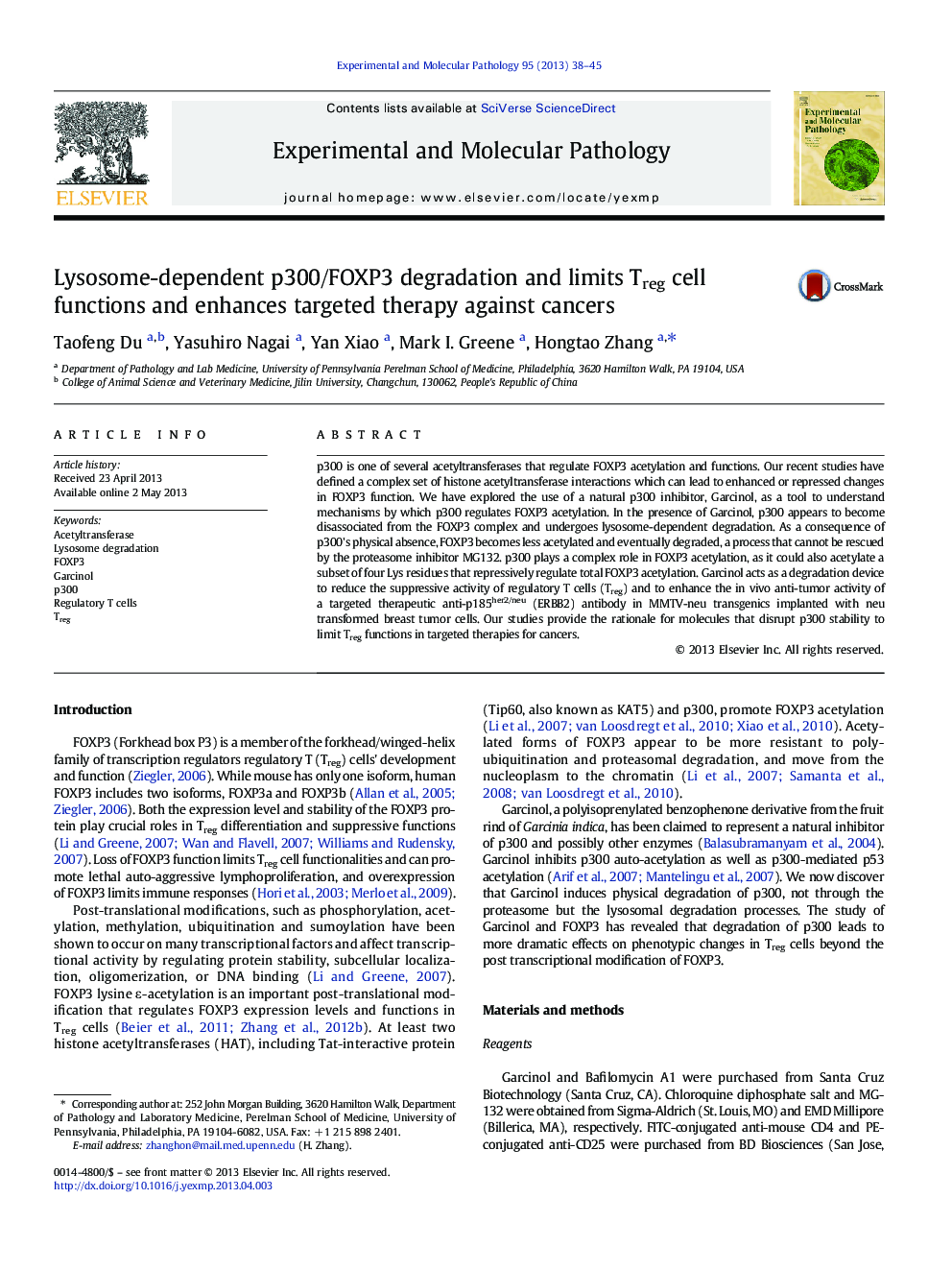| Article ID | Journal | Published Year | Pages | File Type |
|---|---|---|---|---|
| 2775320 | Experimental and Molecular Pathology | 2013 | 8 Pages |
•The acetyltransferase inhibitor Garcinol induces p300 and TIP60 degradation.•Acetylation and stability of FOXP3 is affected by Garcinol.•Garcinol reduces activity of Treg cells and enhance targeted therapy against HER2.
p300 is one of several acetyltransferases that regulate FOXP3 acetylation and functions. Our recent studies have defined a complex set of histone acetyltransferase interactions which can lead to enhanced or repressed changes in FOXP3 function. We have explored the use of a natural p300 inhibitor, Garcinol, as a tool to understand mechanisms by which p300 regulates FOXP3 acetylation. In the presence of Garcinol, p300 appears to become disassociated from the FOXP3 complex and undergoes lysosome-dependent degradation. As a consequence of p300's physical absence, FOXP3 becomes less acetylated and eventually degraded, a process that cannot be rescued by the proteasome inhibitor MG132. p300 plays a complex role in FOXP3 acetylation, as it could also acetylate a subset of four Lys residues that repressively regulate total FOXP3 acetylation. Garcinol acts as a degradation device to reduce the suppressive activity of regulatory T cells (Treg) and to enhance the in vivo anti-tumor activity of a targeted therapeutic anti-p185her2/neu (ERBB2) antibody in MMTV-neu transgenics implanted with neu transformed breast tumor cells. Our studies provide the rationale for molecules that disrupt p300 stability to limit Treg functions in targeted therapies for cancers.
